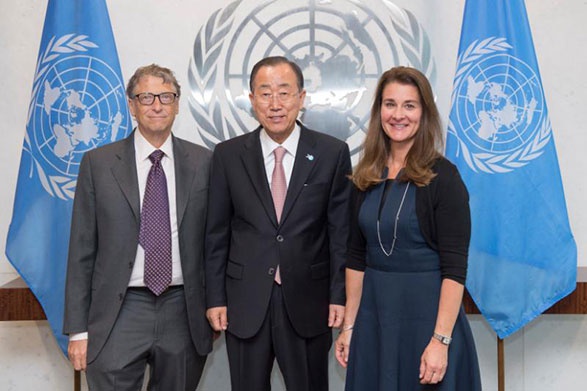
As indicated in the Intergovernmental Panel on Climate Change (IPCC) Special Report on Global Warming of 1.5 °C, damaging climate change impacts are being felt now, much sooner and more powerful than previously projected. Adaptation is about managing the risks associated with climate change – from floods and droughts to sea-level rise and storms.
The Global Commission on Adaptation works to elevate the visibility and political importance of climate adaptation and encourage bold solutions like smarter investments, new technologies, and better planning to become more resilient to climate-related threats.

“Without urgent adaptation action, we risk undermining food, energy, and water security for decades to come. Continued economic growth and reductions in global poverty are possible despite these daunting challenges—but only if societies invest much more in adaptation. The costs of adapting are less than the cost of doing business as usual. And the benefits many times larger,” said Ban Ki-moon, 8th Secretary-General of the United Nations.
Adapt now: A global call for leadership on climate resilience
The Global Commission on Adaptation has overseen the preparation of a flagship report ADAPT NOW: A GLOBAL CALL FORLEADERSHIP ON CLIMATE RESILIENCE and present its findings and recommendations at the United Nations Climate Action Summit 2019. The report, formed by input from the world’s leading scientific, economic and policy analysis institutes, sets out why adapting to climate risks and accelerated action is essential. It also shows what new actions are needed, what must be done differently, and how governments, companies, and citizens can start working today to make the world a safer, better place.
Rate of return on investments in improved resilience is high, with benefit-cost ratios ranging from 2:1 to 10:1, and in some cases even higher.
The report explores how to transform key economic systems, making them more resilient and productive. The analysis finds that climate adaptation can produce significant economic returns: the overall rate of return on investments in improved resilience is high, with benefit-cost ratios ranging from 2:1 to 10:1, and in some cases even higher.
The report specifically finds that investing $1.8 trillion globally in five areas from 2020 to 2030 could generate $7.1 trillion in total net benefits. The five areas of climate adaptation the report considers are early warning systems, climate-resilient infrastructure, improved dryland agriculture, mangrove protection, and investments in making water resources more resilient. These represent just a portion of the total investments needed and total benefits available.
To ensure climate impacts, risks, and solutions are factoring into the decision making at all levels, the report calls for revolutions in three areas: understanding, planning, and finance. It also explores how these major system changes can be applied across seven interlocking systems: food, the natural environment, water, cities, infrastructure, disaster risk management, and finance.
“Climate change is the defining issue of our time. Stabilizing the global climate is one of the most urgent challenges in the coming decades.” Says Ron Nechemia (@RonNechemia), the President of Global Bank (@GlobalBankGroup). “Today, it is increasingly clear that the resilience climate finance required for a successful, orderly transformation to a growing low-carbon and resilient global economy is counted in the trillions and not billions.”







